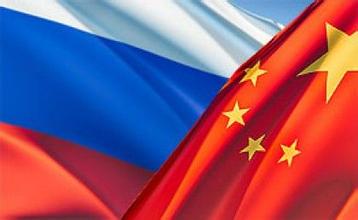Whether Russia, one of 15 successor states to the USSR, which broke up in 1991, is still a genuine world power in 2015 is open to question.
对于俄罗斯这一前苏联(解体于1991年)的15个继任国之一,在2015年还能否稳坐世界大国的宝座,仍有讨论的余地。
It remains the world's largest country and the largest oil producer. It retains its permanent seat on the UN Security Council. Its nuclear arsenal (in Cold War times one of five countries, but now one of nine) has been progressively modernised. Sustained increases in defence spending have brought it close to its goal of escalation dominance in local and regional war.
它依旧是世界上最大的国家和最大的石油生产国。它依旧是联合国安理会常任理事国之一。它的核武库(冷战时期五个国家中的一个,现为九个中的一个)已逐步现代化。国防开支的持续增加使它接近当地和地区战争的大国统治的目标。
But the economic base for these capabilities is steadily declining.
但支撑其大国地位的经济基础正逐步下滑。

Russia's economy is the 10th largest in the world, producing little of value beyond hydrocarbons. Corruption and rent-seeking extract an enormous economic toll. It remains burdened with Soviet era infrastructure, and its ability to meet the educational and medical needs of its population is rapidly declining.
俄罗斯为世界上第十大经济体,除了天然气(碳氢化合物),经济贡献甚微。腐败和寻租行为使经济蒙受巨大损失。它依然沿用着苏联时代的基础设施,并且满足国民教育、医疗需求的能力正急速下滑。
Whatever one's view, two further points for and against Russia's global standing are undeniable:
不管个人观点如何,不可否认的是,现在存在着支持和反对俄罗斯全球定位的两种观点:
Russia regards itself as a great power - it is not in question anywhere inside the country.
俄罗斯把自己看作超级大国 -- 这在国内是毋庸置疑的。
China has long since eclipsed Russia as the world's number two power behind the US.
中国早已超越了俄罗斯成为紧随美国之后的世界第二大强国。
Yet for all Russia's pretence about a rebalancing of priorities towards Asia, since the fallout over Ukraine, it still measures itself against the West, and America in particular.
尽管俄罗斯假装把再平衡的重点转向亚洲,但是从其对乌克兰的做法可以看出,它仍然在权衡自己的力量以对抗西方,尤其是美国。













